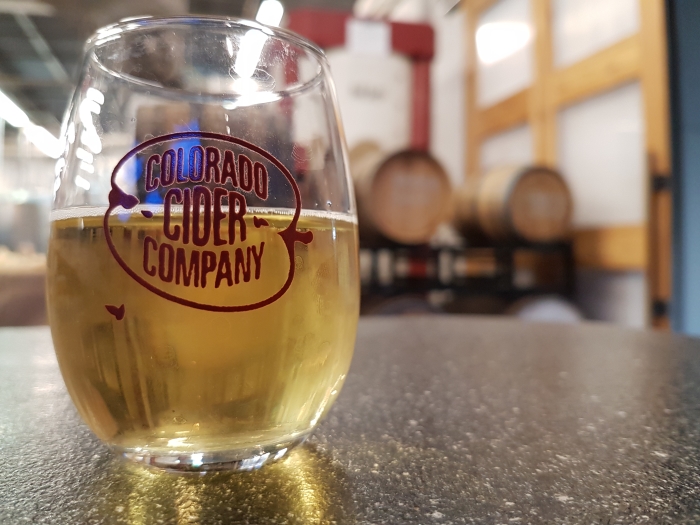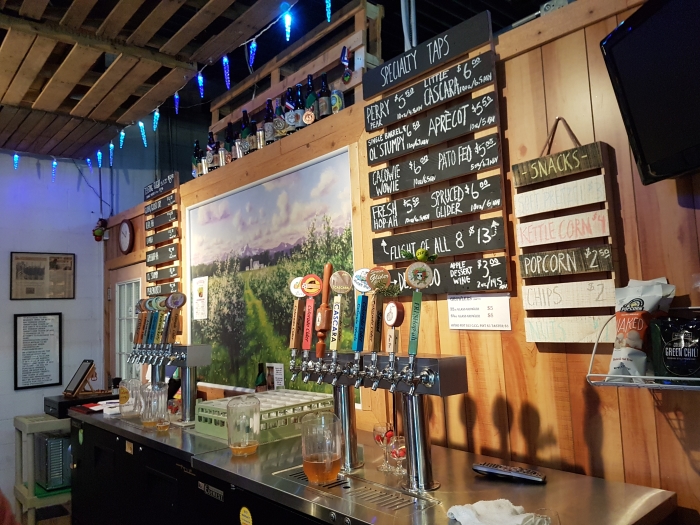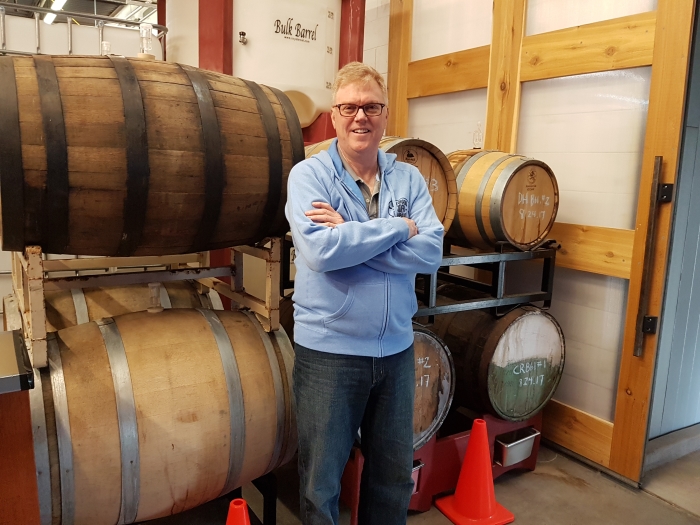Drinkin' Cider In Beer Country
A visit to Colorado Cider Company
All photos by Mike Gerrard.
As home of the Great American Beer Festival, Denver's long been the USA's beer capital. Nearby Golden also has Coors, the world's largest single brewery. So why did Brad Page decide to start the state's first cidery when he founded the Colorado Cider Company in 2011? "I started off being interested in what the UK was doing with craft beer and cider," he says. "I fell in love with their craft ciders, and that was it. Cider is 15% of the UK beer market. If that happens in the US, I'll be buying a beach house!"
There are now 20 cideries in Colorado, although they are technically wineries as they make alcohol out of fruit. That compares to almost 350 breweries, 140 wineries and about 100 distilleries.
"One of the reasons cider has been a hard sell," Brad says, "is that on the commercial side cider was known as being soda-pop sweet and craft beer drinkers simply haven't been interested. That perception is starting to change, though, and more and more people are starting to at least give cider a try."
What they're also doing is giving drinks in cans a try, too. "Cans are definitely taking over in beer and cider," Brad explains. "People are at last realizing that beer and cider in cans is just as good as in bottles, and they have all the advantages of being lighter and easier to transport. They're also easier to print on and be creative with. In one year we've gone from 100% bottles to 80% cans."
What goes inside Brad's cans is also very creative, as I discover at a tasting session after a quick tour of his small and charmingly ramshackle cidery. We start with a Glider Cider, their original flagship cider, which remains popular. It has a very fresh apple aroma and taste, and a dry finish. It's made with Jonathan, Granny Smith, and Golden Delicious apples from the company's own orchard, blended with other varieties from Washington State.
"If we start growing better cider apples in the USA," Brad says, "then cider will grow. Washington State is the Goldilocks of cider apples. 80% of cider apples come from there. The second year we were open there was a bad freeze and there were no Colorado apples so we started buying from Washington."
To counteract the lack of good local cider apples, in 2013 Brad planted 1,000 trees of his own in the Colorado Western Slope, followed by 2,000 more in 2014. Varieties include such wonderful names as Spitzenburg, King David, Wickson Crab, Harry Masters, Arkansas Black, Winter Banana, Dabinett, Foxwelp, and Brown Snout.
Brad Page
Brad's come up with some good names for his ciders, too, like next on the tasting table, Grasshop-ah. This is their Glider Cider but made more citrusy by adding lemongrass and hops. "In the USA," Brad tells me, "the existing cider law changed about ten years ago. Bulmers came over from England to help with the legislation, the definitions. Requirements included how much apple juice had to be in there in order to call it cider. We only use straight juice, not concentrate. You can put hops in, because they're not fruit, and still call it cider."
Next up is their Aprècot ("Because you can have it après anything"). This pairs their cider with some tart apricots, so there's a mix of sweet and sour about it. Finally I tried Ol' Stumpy, a blend of traditional bittersweet, bitter sharp, and American heirloom apples. This is aged for a year, including four months in chardonnay oak barrels, giving oaky hints to this otherwise dry cider, whose taste is as complex as any beer or wine.
Although I'd finished the official tasting, Brad was so full of enthusiasm for his ciders that he brought me samples of some of his experiments, not all of which are available yet. "We use rum barrels, whiskey barrels," Brad says. "We've used port barrels. We like white wine barrels. Red wine barrels are a little tough, there's too much contrast with the cider. Rum works well, though."
It certainly does, as does the cider aged in both rum and whiskey barrels for a year, with pitted cherries in them. It's a revelation as to just how good cider can be. Brad may not yet have his beach house, but if he carries on making cider like this it's only a matter of time.



